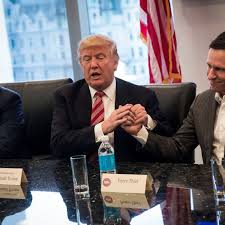
Introduction
Peter Thiel is a prominent figure in the tech world, known for his role as a co-founder of PayPal and his early investments in companies like Facebook and Palantir Technologies. As a billionaire entrepreneur and venture capitalist, Thiel has played a significant role in shaping the landscape of the Silicon Valley ecosystem. His insights and investments have not only driven technological advancements but have also influenced political discussions and entrepreneurial mindsets. Understanding Thiel’s impact is essential for anyone interested in the intersection of technology and business.
Thiel’s Background and Career
Born on October 11, 1967, in Frankfurt, Germany, Thiel and his family moved to the United States when he was a child. He earned his Bachelor of Arts in Philosophy from Stanford University and later obtained a Juris Doctor from Stanford Law School. Thiel’s career began in the legal and financial realms, but he found his true calling in technology.
In 1998, he co-founded PayPal, which revolutionized online payments. After eBay acquired PayPal for $1.5 billion in stock in 2002, Thiel became a very wealthy man. He then went on to establish Clarium Capital, a hedge fund, and also co-founded Palantir Technologies, a data analytics company focused on governmental and large-scale corporate uses.
Influence on Startups and Political Landscape
Thiel’s investment strategies have revealed a strong belief in identifying and supporting disruptive ideas. Through Founders Fund, which he co-founded in 2005, he has invested in numerous successful startups, including SpaceX and Airbnb. His approach often emphasizes backing unconventional thinkers and projects that challenge the status quo.
In addition to his business endeavors, Thiel’s political views have garnered attention. He was a vocal supporter of Donald Trump during the 2016 presidential campaign, an endorsement that brought him both praise and criticism. Thiel has argued that technology can provide solutions to societal issues, representing a blend of libertarianism with an eagerness to reshape public policy through tech innovation.
Conclusion
Peter Thiel’s influence on technology and culture cannot be overstated. Through his ventures and investments, he has encouraged a wave of innovation that has changed the way we live and interact. His controversial political stances and unique perspectives on the future of technology challenge conventional norms and provoke thought about the intersection of tech and governance. For readers keen on understanding the driving forces behind Silicon Valley and its effect on global affairs, Thiel’s journey offers crucial insights. As technology continues to evolve, Thiel’s perspectives and strategies will likely play a significant role in shaping the next generation of innovations.




